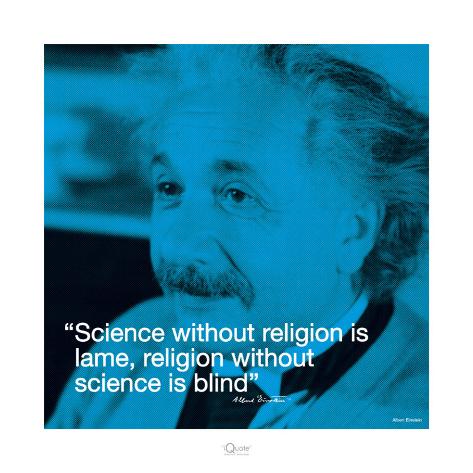 |
| (via) |
Anyways, what I was intending to discuss today is the relationship between religion and science, because I currently doing research for a paper about the Church and evolution and so I've been reading lots of things various Popes have written about evolution and science in general. The Church had a rough start with the whole science thing, what with Galileo and all, but in the past century, it has been one of the most progressive religious institutions when it comes to integrating scientific discoveries and theology, and the way that it expresses this integration and the reservation it has about it, are some of the most poignant reflections about science that I've read in a long time.
Let's start with the "Letter of his Holiness John Paul II to Reverend George V. Coyne, S.J. Director of the Vatican Observatory" (1987), (and no, Imaginary Readers, I don't expect any of you to actually read this, although it is really interesting if you enjoy Papal writings about science). The letter stresses the need for a new era of critical openness and exchange between science and religion, as it consideres both crucial to the understanding and appreciating "our universe as a whole." It touches on some really important concepts when dealing with the relationship of science and religion in ways that are much more open and understanding than you would necessarily expect the Church to be. For example, it stresses that "[t]he Church does not propose that science should become religion or religion science" something that I think people in the pro-science camp sometimes forget is an option. They seem to think that any religious involvement or discourse with science means that religion is trying to take it over and impose it's own pre-conceived notions upon science, which some do, particularly Christian fundamentalists, but, as demonstrated here, that is not the only way to interact with religion, because "religion is not founded on science nor is science an extension of religion...Christianity possesses the source of its justification within itself and does not expect science to constitute its primary apologetic." Religion should not expect to find any justification for its existence within science, because religious tenets are outside of the purview of the natural; any divinity is by its very nature supernatural, and thus, no direct evidence for it occurs in nature, which is exactly what the Pope is saying here. Religion is free to interpret scientific findings to suit its theological tenants, but it cannot expect science to prove or disprove those tenants. This is again something that people on both sides misunderstand I think. Science is in itself not an argument for atheism, because you cannot prove a negative, thus you can never prove that God doesn't exist, nor can science be twisted to prove pre-conceived religious notions as the Young Earth Creationists like to do. The important thing to take away from this discussion is that "science can purify religion from error and superstition; religion can purity science from false absolutes." I do believe that an honest dialog between the two camps is needed to do just that, so people can see that they aren't mutually exclusive and not all religious people are science deniers or pseudo-scientists nor are all science advocates rabid atheists who believe any sort of faith is stupid.
I think it says a lot about the theological maturity of the Church that it recognizes the need for honest dialog between science and religion, and that science is the medium through which we understand the world around us. It means something that one of the largest organized religious bodies in the world, one which is notoriously resistant to change, recognizes scientific truths such as human evolution and quantum physics, and that religion itself is not infallible. Here the Church is willing to meet science half-way, without compromising its belief system, so long as the scientific community is willing to do the same. This is not to say that religious beliefs should inform scientific inquiry, rather that while they occupy separate sphere, as it should be, they should be in dialog with each other, because both can grow from attempting to understand where the other is coming from and what values inform each.
 |
| (via) |
I know that many people don't think that religion has anything to offer science, but I think that John Paul II makes a good point when he claims that religion can help science to "not become an unconscious theology."The reason, I think, many people see science and religion as incompatible (the actually incompatible Young Earth views notwithstanding) is that I think there are some within the scientific community who propagate the idea that they are mutually exclusive, such as the hard core atheists. I want to clarify here that I'm not talking about those people who just don't believe there is a god for reasons of their own, but I am specifically referring to those who yell really loudly about how science makes a god impossible and how atheism is the only logical, reasonable conclusion, and that if you aren't an atheist you are stupid, gullible, and deluded. Those people can stand to benefit from the realization that they are using science as a justification for their own system of beliefs, which is as valid as any, but not inherently better or more reasonable than any other. They have turned science into a basis for their own brand of theology, because they are using it to make claims that it in itself cannot make. Like I said, you can't prove a negative. Absence of proof is not proof of absence, no matter what anyone claims. A dialog between science and religion wouldn't force anyone to believe or disbelieve in God, and might in fact help to open minds on both sides, which I think would be a good thing all round.
No comments:
Post a Comment